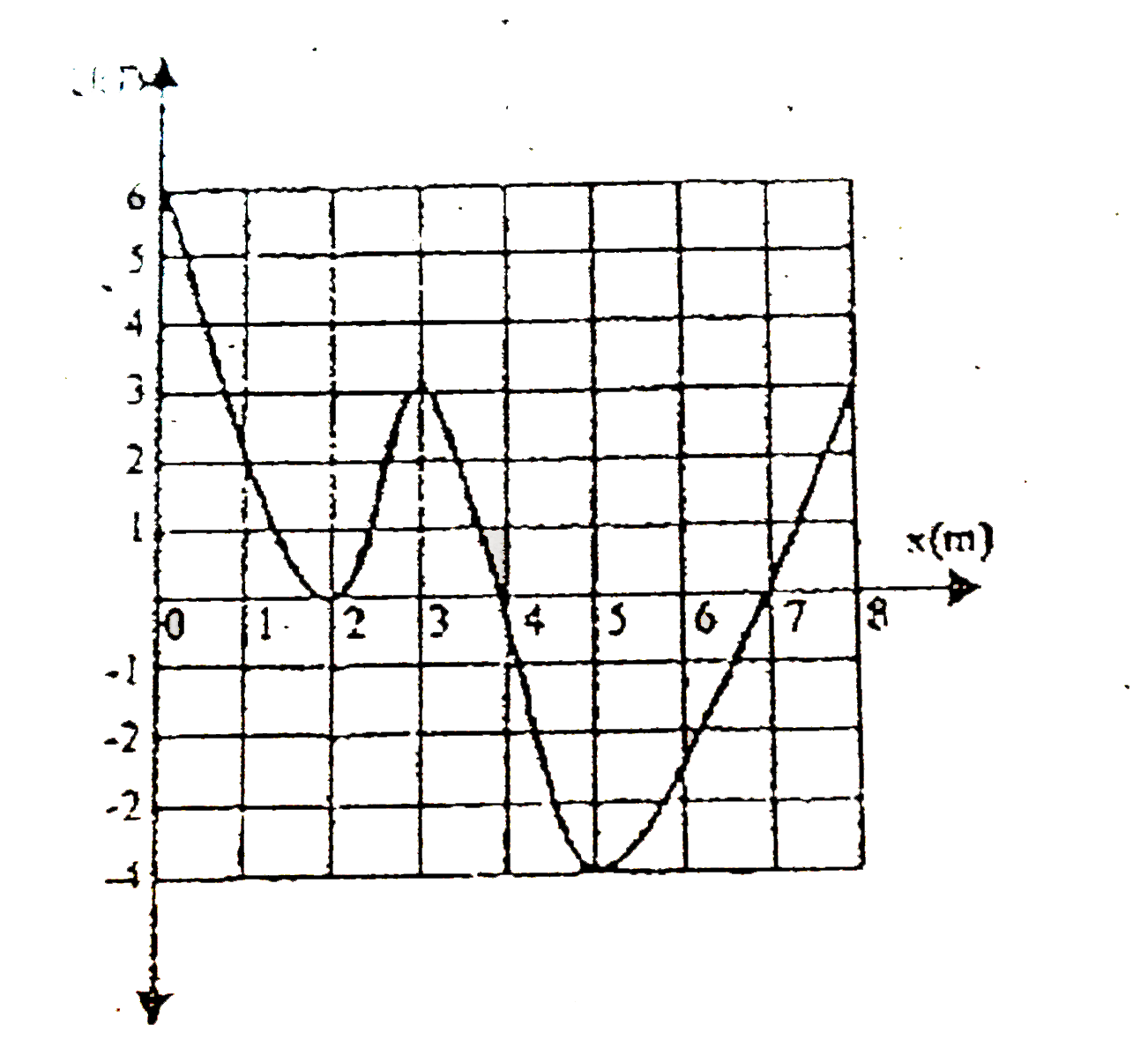Can a single isolated particle possess potential energy? Justify.
To determine whether a single isolated particle can possess potential energy, we need to analyze the concept of potential energy in relation to forces and systems of particles.
1. Definition of Potential Energy:
Potential energy is the energy stored in an object due to its position relative to other objects. It is often associated with the gravitational force, elastic force, or electric force acting between two or more objects.
2. Isolated Particle:
An isolated particle is one that does not interact with any other particles or forces. It exists independently in space without any external influence.
3. Conditions for Potential Energy:
For an object to have potential energy, there must be a force acting on it due to another object. This interaction creates a potential energy associated with the position of the object within a field (like gravitational or electric fields).
4. Example of a System:
Consider a system consisting of two masses, such as Earth and Mars. The gravitational force between them creates a potential energy in the system. The potential energy depends on their positions relative to each other.
5. Conclusion for a Single Particle:
Since a single isolated particle does not interact with any other particle or force, it does not have a reference point to measure potential energy against. Therefore, it cannot possess potential energy by itself.
6. Final Justification:
Potential energy is a property of a system of particles rather than an individual particle. Thus, a single isolated particle cannot possess potential energy.
Final Answer:
No, a single isolated particle cannot possess potential energy because potential energy is defined in the context of interactions between particles or systems of particles.
---
Potential energy is the energy stored in an object due to its position relative to other objects. It is often associated with the gravitational force, elastic force, or electric force acting between two or more objects.
An isolated particle is one that does not interact with any other particles or forces. It exists independently in space without any external influence.
For an object to have potential energy, there must be a force acting on it due to another object. This interaction creates a potential energy associated with the position of the object within a field (like gravitational or electric fields).
Consider a system consisting of two masses, such as Earth and Mars. The gravitational force between them creates a potential energy in the system. The potential energy depends on their positions relative to each other.
Since a single isolated particle does not interact with any other particle or force, it does not have a reference point to measure potential energy against. Therefore, it cannot possess potential energy by itself.
Potential energy is a property of a system of particles rather than an individual particle. Thus, a single isolated particle cannot possess potential energy.
No, a single isolated particle cannot possess potential energy because potential energy is defined in the context of interactions between particles or systems of particles.
Topper's Solved these Questions
- ENERGY & MOMENTUMBOOK - VMC MODULES ENGLISHCHAPTER - ENERGY & MOMENTUMEXERCISE - LEVEL - 0 - LONG ANSWER TYPE
5 Videos
- ENERGY & MOMENTUMBOOK - VMC MODULES ENGLISHCHAPTER - ENERGY & MOMENTUMEXERCISE - Level - 1
87 Videos
- ENERGY & MOMENTUMBOOK - VMC MODULES ENGLISHCHAPTER - ENERGY & MOMENTUMEXERCISE - JEE ADVANCE (ARCHIVE) - TRUE/FALSE TYPE
1 Videos
- ELECTROSTATICSBOOK - VMC MODULES ENGLISHCHAPTER - ELECTROSTATICSEXERCISE - JEE Advanced (Archive)
89 Videos
- GASEOUS STATE & THERMODYNAMICSBOOK - VMC MODULES ENGLISHCHAPTER - GASEOUS STATE & THERMODYNAMICSEXERCISE - JEE ADVANCED (ARCHIVE )
111 Videos
Similar Questions
Can a single isolated force exist in nature ?
View SolutionA particle is executing SHM with amplitude A. At displacement x=(−A4), force acting on the particle is F, potential energy of the particle is U, velocity of particle is v and kinetic energy is K. Assuming potential energyh to be zero at mean position. At displacement x=A/2
View Solution
Knowledge Check
A particle executing SHM with an amplitude A. The displacement of the particle when its potential energy is half of its total energy is
AA√2BA2CA4DA3
In position A kinetic energy of a particle is 60 J and potential energy is -20 J. In position B, kinetic energy is 100 J and potential energy is 40 J. Then, in moving the particle from A to B
View SolutionA particle executes linear SHM with amplitude A and mean position is x=0. Determine position of the particle where potential energy of the particle is equal to its kinetic energy.
View SolutionA particle performing SHM with amplitude 10cm. At What distance from mean position the kinetic energy of the particle is thrice of its potential energy ?
View SolutionAssertion: Energy of an isolated particles system is constant.
Reason: Isolated system do not allow exchange of energy
View SolutionAt time t, the kinetic energy of a particle is 30.0J and the potential energy of the system to which it belongs is 10.0J. At some later time tf, the kinetic energy of the particle is 18J, what are the potential energy and the total energy at time tf? If the potential energy of the system at time t3 is 5.00J, are any non-conservative forces acting on the particle? Explain.
View SolutionA particle executes SHM with an amplitude of 10cm and frequency 2Hz, at t=0, the particle is at point where potential energy and kinetic energy are same. Find the equation of displacement of particle.
View SolutionPotential energy curve U of a particle as function of the position of a particle is shown. The particle has total mechanical energy E of 3.0 joules. Then select correct alternative.

View Solution
